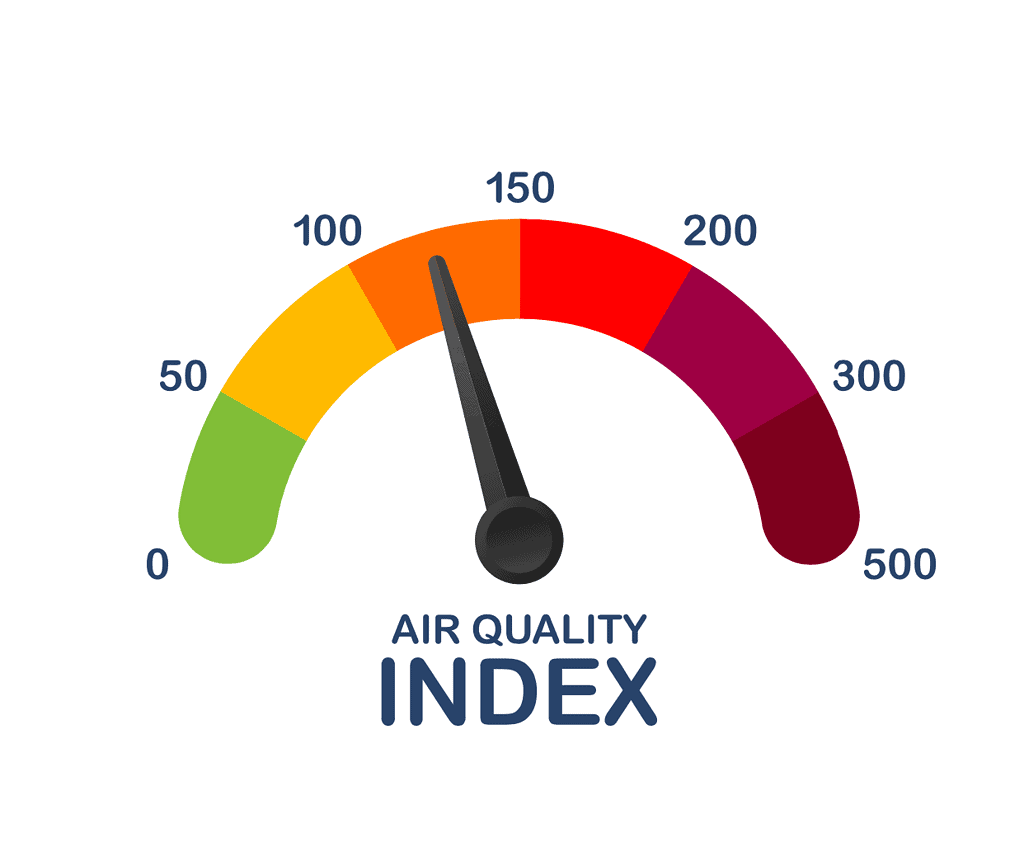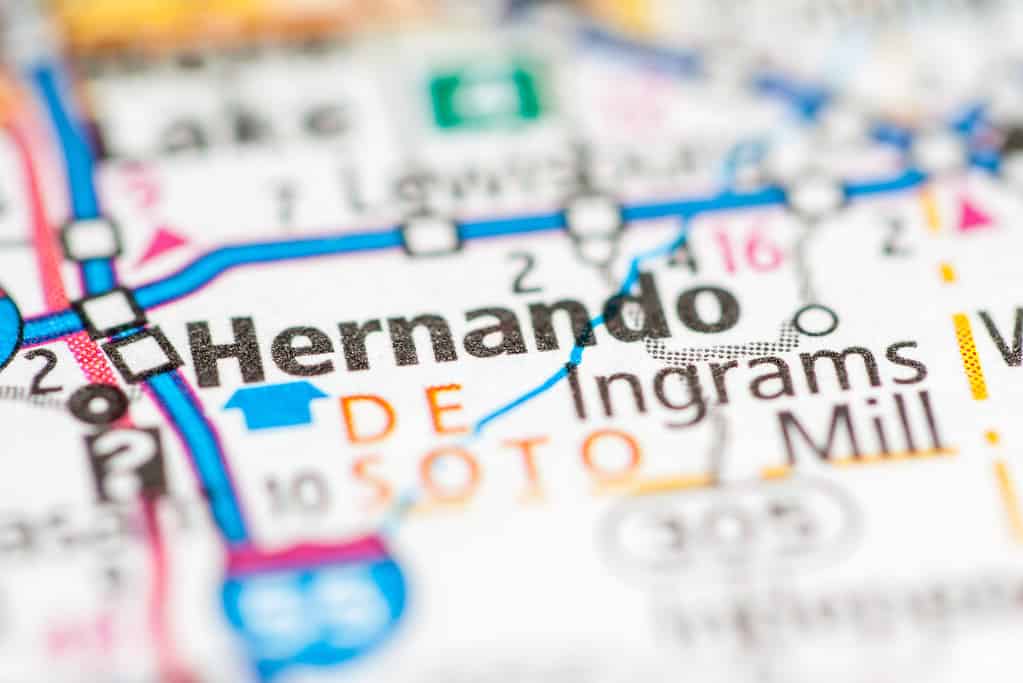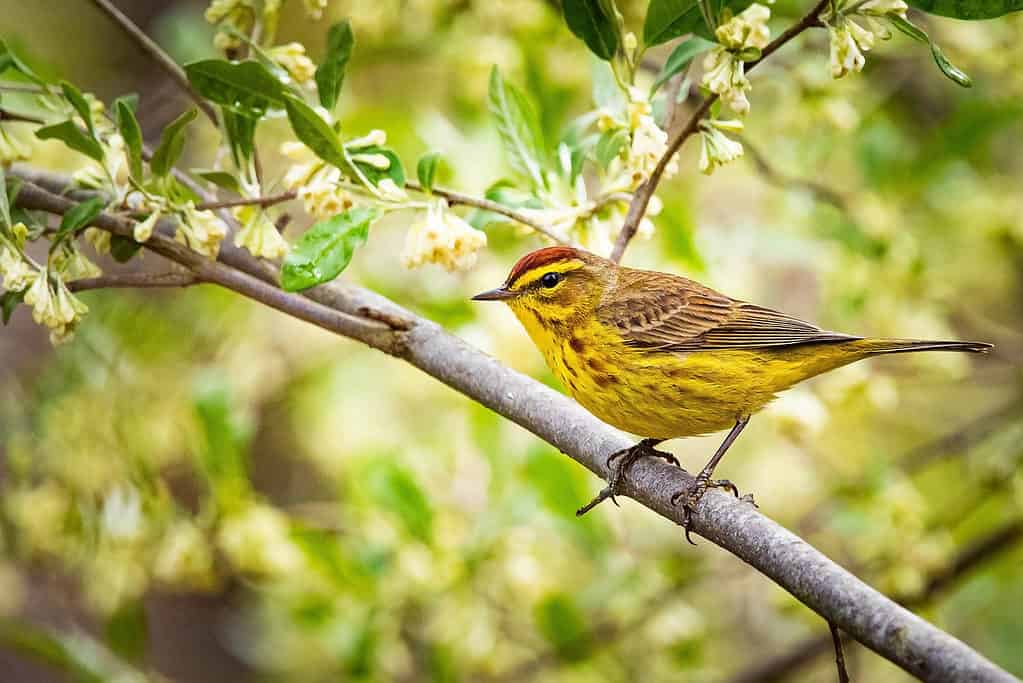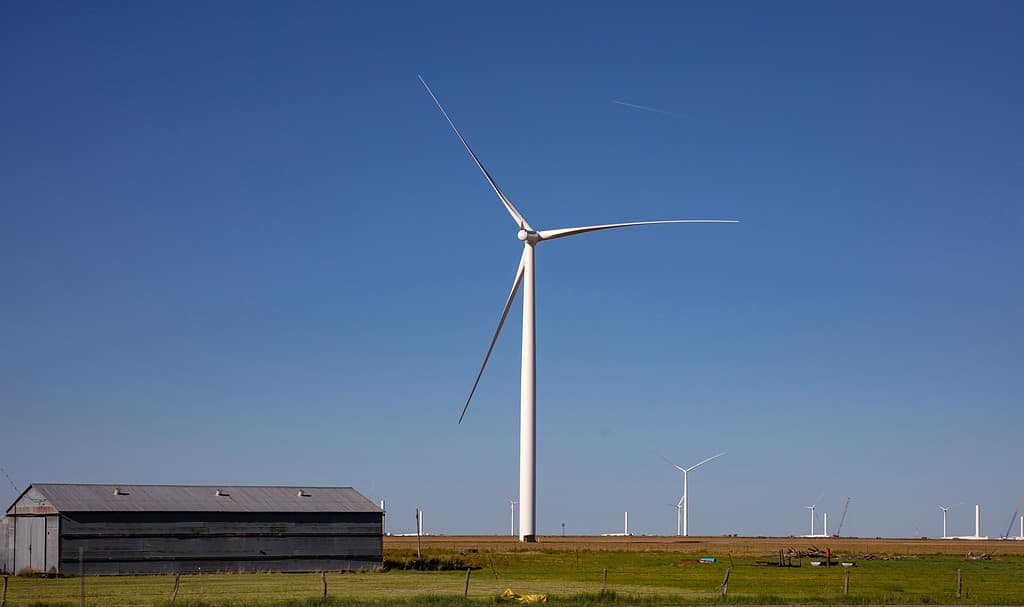Air pollution is a growing problem in the United States, particularly in densely populated areas. But one town in Mississippi stands out for having some of the worst air quality in the nation. This article will explore how poor air quality affects wildlife and what individuals and communities can do to help protect local wildlife populations. So, let’s dive in and discover which town in Mississippi has the worst air quality.

Hernando, Mississippi, holds the dubious distinction of being the most polluted city in the state, with an
Air Quality Index (AQI) of 46
.
©DG-Studio/Shutterstock.com
What is the Most Polluted Town in Mississippi With the Worst Air Quality?
As of April 26, 2023, Hernando, Mississippi, holds the dubious distinction of being the most polluted city in the state, with an Air Quality Index (AQI) of 46. This means that the air quality in Hernando is considered “hazardous” and can have serious health effects on residents and wildlife alike. Pascagoula, Jackson, and Cleveland cover Mississippi’s top four most polluted cities.
The Mississippi Air Quality Index Zip Code Rank reveals that zip code 39483 has the highest AQI in Mississippi, with a rank of 109. However, Mississippi’s current real-time air quality is rated as “good,” with an AQI of 30.
Air quality trends in Mississippi indicate that the state has struggled with poor air quality. This is a concern for human health and has implications for wildlife.
Poor air quality can impact wildlife in several ways. It can cause respiratory problems, reduce visibility, and alter ecosystems. Animals can develop respiratory problems when exposed to high levels of air pollution, and reduced visibility can make it difficult for them to navigate their environment, find food, and avoid predators. Pollution can alter the delicate balance of ecosystems and have a cascading effect on wildlife populations.
It is important to note that air quality in Mississippi has been improving in recent years due to the efforts of state and local governments, individuals, and organizations. Nonetheless, it is crucial to continue to work towards cleaner air and to protect wildlife from the negative impacts of pollution.
What Does the Air Quality Index Range Mean?
The AQI scale measures air pollution levels ranging from 0-500. It provides information about health risks associated with different levels of air pollution, with “good” being 0-50 and “hazardous” being 300-500. Since Hernando reported an AQI of 40, considered “hazardous,” it can cause serious health effects on people and wildlife.
Remember that air quality can quickly change, so it’s crucial to stay informed and take necessary actions to keep your family safe. These actions include limiting outdoor activities when the AQI is high, avoiding areas with high traffic or industrial activity, and minimizing your exposure to pollutants.
How Many People Live in Mississippi? How Many Specifically in Hernand?

The population of Hernando, Mississippi, as of the 2020 census records, was 17,138.
©SevenMaps/Shutterstock.com
The population of Hernando, Mississippi, as of the 2020 census records, was 17,138. As the county seat of DeSoto County, the second-most populous county in the Memphis metropolitan area, Hernando plays a vital role in the region’s economy and culture.
As per the 2020 census, the population of Mississippi stands at 2,961,279. Among all states within the US, Mississippi is ranked as the 31st most populous one. It has a population density ranking of 32nd. Over the past few decades, Mississippi’s population has remained relatively steady, with a growth rate of only 0.30%.
Mississippi is known for its rich history, culture, and natural beauty. The state offers a unique blend of urban and rural environments, from bustling cities to serene forests and waterways. Wildlife is a significant part of Mississippi’s natural heritage. Protecting these natural resources is crucial for Mississippians’ well-being and the state’s unique ecosystem.
How Does Mississippi’s Air Quality Compare to Other States?
While the AQI in Mississippi varies by location and time of year, the state has a history of poor air quality. In 2023, Mississippi ranked 18th in air quality by state, with an overall score of 85.5%.
Air pollution can have severe health impacts on people, particularly those with respiratory or cardiovascular conditions. Environmental impacts such as reduced visibility, altered ecosystems, and negative impacts on wildlife cause concern.
The good news is that many individuals, organizations, and governments are taking steps to address air pollution and improve air quality. Initiatives such as reducing emissions from factories and vehicles, promoting clean energy, and raising awareness of the impact of air pollution on human health and the environment can all contribute to cleaner air and a healthier planet.
What Wildlife is in Hernando, Mississippi?

The local ecosystem in Hernando is unique and supports a diverse range of wildlife.
©iStock.com/GummyBone
Hernando, Mississippi, is located in DeSoto County, northwest of the state. The city has a subtropical climate characterized by hot summers and mild winters, providing an ideal environment for various wildlife species. Here are some of the animals you might find in the area:
Mammals:
- and various species of rodents are common in Hernando.
Birds:
Reptiles and amphibians:
The local ecosystem in Hernando is unique and supports a diverse range of wildlife. One notable feature is the Wolf River Wildlife Management Area, a 10,000-acre natural area home to various habitats, including wetlands, forests, and grasslands.
Hernando’s local wildlife populations face several threats, including habitat loss and climate change. Human development in the area has led to the destruction of natural habitats. They can have devastating effects on local animal populations. The changes in temperature and precipitation patterns caused by climate change can affect the timing of important animal behaviors such as migration and breeding.
Fortunately, several organizations and conservation efforts are working to protect the wildlife in Hernando. One example is the Wolf River Conservancy, a nonprofit organization that aims to protect and preserve the watershed and its surrounding habitats. Other organizations in the area include the Mississippi Wildlife Federation and the DeSoto County Master Gardeners.
How Does the Poor Air Quality Affect Wildlife?
Poor air quality can have significant impacts on animal health and behavior. Air pollution, caused by human activities such as burning fossil fuels and industrial processes, can release harmful chemicals into the atmosphere, negatively affecting animal populations. Here are some of the ways poor air quality can affect wildlife:

Promoting cleaner energy sources, such as wind and solar power, can help reduce greenhouse gas emissions.
©iStock.com/Rawf8
Animal Health
Exposure to air pollution can cause respiratory problems, such as lung inflammation, in animals. Over time, this can lead to chronic health conditions that can be fatal.
Reproduction and development
Air pollution can also affect animal reproduction and development. Studies have shown that exposure to pollutants can lead to reproductive problems, such as decreased fertility and developmental abnormalities in young animals.
Changes in behavior
Poor air quality can also alter animal behavior, such as feeding and mating habits. For example, some species of birds have been observed to avoid areas with high levels of pollution. This can disrupt their migration patterns and impact their survival.
Case studies have shown that various species of wildlife in Hernando have been affected by poor air quality, including birds and fish. For example, mercury pollution in local waterways has been linked to reproductive issues in fish populations.
Poor air quality is also linked to climate change, which can significantly impact wildlife. Climate change can alter the timing of seasonal events, such as plant flowering and animal migrations, which can have cascading effects on entire ecosystems.
Reducing air pollution and improving air quality can significantly benefit local wildlife populations. For example, reducing emissions from industrial and transportation sources can improve the air quality in local ecosystems, positively affecting animal health and behavior. Additionally, promoting cleaner energy sources, such as wind and solar power, can help reduce greenhouse gas emissions. It will mitigate the impacts of climate change on wildlife.
Individuals and communities are essential in promoting cleaner air and reducing their impact on wildlife. Simple steps such as reducing single-use plastics, carpooling, and energy consumption at home can reduce air pollution and improve air quality.
Individuals can also support conservation efforts and organizations protecting local wildlife habitats. Volunteering with local wildlife organizations, supporting local conservation efforts, and advocating for sustainable policies and practices can all help to protect local wildlife populations and their habitats.
Where is Hernando, Mississippi Located on a Map?
Hernando, located in DeSoto County, Mississippi, serves as both a city and the county seat. Situated on the northwestern border of the state, Hernando had a population of 17,138 as of the 2020 census.
Here is Hernando, Mississippi on a map:
Conclusion
Wildlife in Hernando County is facing myriad challenges due to poor air quality, climate change, and other human activities. However, there is hope that we can protect these species and their habitats with our collective efforts. By reducing air pollution and supporting local conservation efforts, we can ensure a safe and healthy future for the wildlife of Hernando County. Together, everyone can make a difference and protect our incredible natural resources.
The photo featured at the top of this post is © Orawan Pattarawimonchai/Shutterstock.com
Thank you for reading! Have some feedback for us? Contact the AZ Animals editorial team.






